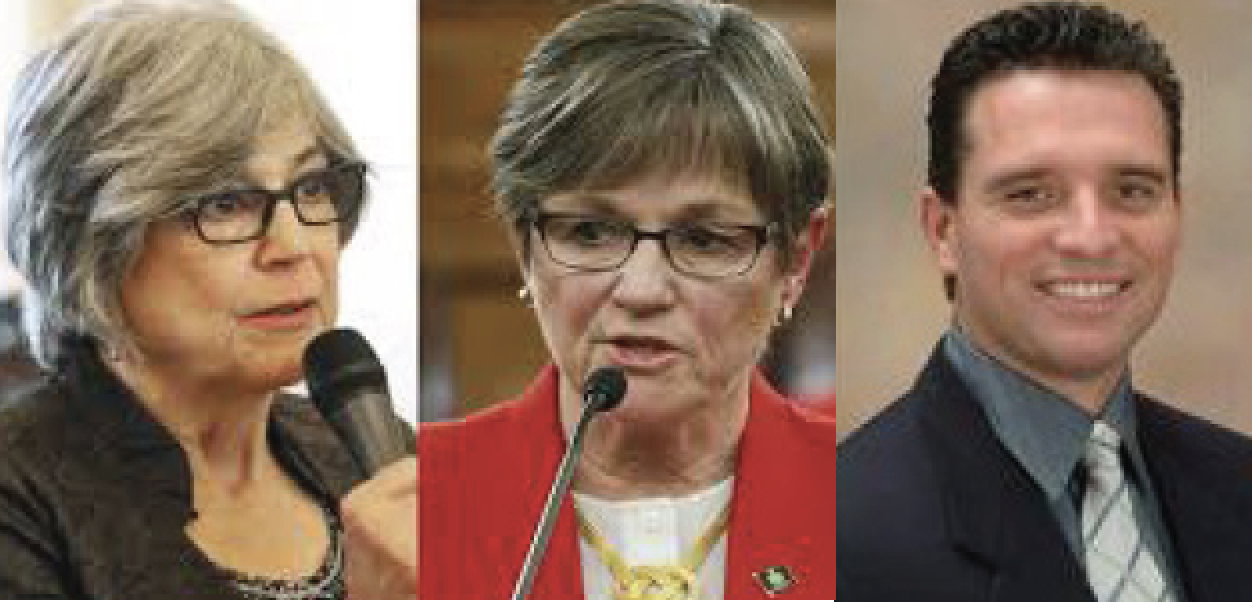TOPEKA —Expanding Medicaid coverage is just one of several issues before the 2020 Kansas Legislature that could affect seniors for years to come.
Some advocates say it’s imperative that the state act now to adequately support its growing number of older residents.
“2020 to 2030 is a critical decade for aging services in our state,” Annette Graham, executive director of the Central Plains Area Agency on Aging, said. “We really need to do some heavy lifting.”
According to the Kansas Area Agencies on Aging, of which CPAAA is a member, the number of Kansans 60 and older has grown by the “colossal” rate of 8.6 percent during just the last four years.
In January, Democratic Gov. Laura Kelly and Senate Republican leader Jim Denning of Overland Park announced they had reached a compromise on expanding Medicaid. The plan would allow up to 150,000 low-income Kansans to receive coverage, including thousands of people between the ages of 60 and 65 who are too young to qualify for Medicare but who make too much money to qualify for Medicaid.
Although the Kelly-Denning proposal appears to give Medicaid expansion its best chance yet of being approved, at least two area Republican legislative leaders —Senate President Susan Wagle of Wichita and Sen. Ty Masterson of Andover —have made clear their opposition. Wagle said “socialized government-run healthcare is not the answer for Kansas” while Masterson said Denning “just threw a pick-six to the opposing team.”
Kansas is one of 14 states that have not expanded Medicaid. The federal government is paying 90 percent of the costs of expansion.
Don Woodard, a Shawnee County resident and speaker of the state’s Silver Haired Legislature, said the Kelly-Denning compromise isn’t perfect but has “almost everything in it we would like.”
More money for the state’s Senior Care Act services, which are designed to help older residents stay in their homes, is another priority. Funding currently stands at $6.8 million and “it’s been a long time since it’s been increased,” Graham said. As a result, “We’re really able to help a lot less people and that gap will continue to grow.”
KAAA wants another $4 million for services such as attendant care, homemaker services and respite care. The services are cost effective compared to those delivered in a nursing facility, advocates say.
“I’m sure they (legislators) will argue there isn’t any money for it,” Woodard said. “We’ll be fighting for it.”
KAAA is also pushing for the creation of an Older Kansans Infrastructure Task Force, arguing that the state’s “seismic demographic shift” demands attention to “quality of life and equal opportunity for older adults.”
The SHL wants to see more money for senior transportation, a sales tax exemption for food purchases, full funding of the state employee pension system, a strengthening of grandparents’ legal rights and some kind of medical marijuana legalization.
“They don’t have to come out with a blanket law (allowing marijuana for all medical conditions),” Woodard said. “They can pinpoint specific conditions and treatments, if that’s all they want to approve.”
As with Medicaid expansion, Kansas is part of a minority of states that don’t permit medical use of cannabis.
Woodard said he didn’t think a proposal by Kelly to fold the state’s Department of Aging and Disability Services, Department of Children and Families and juvenile services division of the Department of Corrections into a new agency called the Department of Human Services would impact seniors one way or another.
The move seems designed primarily to shore up the state’s troubled child protection and foster care efforts.
“The children in the state, they’re not having a good time of it,” Woodard said. “Senior citizens are not going to stand in the way of funding programs to take care of children. On the other hand, we now have over 700,000 senior citizens and the state’s got to take care of them.”










